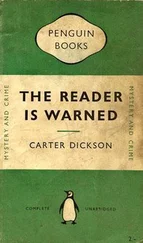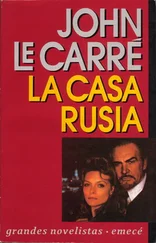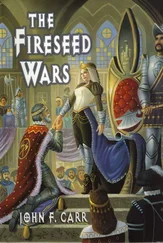'So I mean tell me something, Barley. Okay? Are we pioneers or are we the fucking Mitford sisters? So a few unbooks are books this year. So a few unwriters have been sprung from jail. Big deal. I walk into my own stand this morning, there's some asshole pulling the books out of my shelves. "May I ask you a personal question?" I says. "What the fuck are you doing with my books?" "Orders," he says. Six books, he confiscated. Mary G. Ambleside on fucking Black Consciousness in Song and Word . Orders! I mean who are we, Barley? Who are they? What do they think they're restructuring when there was never a structure in the first place? How do you restructure a corpse?'
At Lupus Books they were directed to the coffee room, where our Chairman Himself, the ncwly-knightcd Sir Peter Oliphant, had upstaged even the Russians by reserving a table. A handwritten notice in both languages confirmed his triumph. The flags of Britain and the Soviet Union warned off doubters. Flanked by interpreters and high officials, Sir Peter was dilating on the many advantages to the Soviet Union of subsidising his generous purchases from them.
'It's the Earl!' cried Barley, handing him an envelope. 'Where's the coronet?'
With scarcely a flicker of his dusty eyelids, the great man continued his dissertation.
At the Israeli stand an armed peace reigned. The dark queue was orderly but mute. Boys in jeans and sneakers lounged against the walls. Lev Abramovitz was whitehaired and overpoweringly tall. He had served in the Irish Guards.
'Lev. How's Zion?'
'Maybe we're winning, maybe the happy ending's at the beginning,' Lev said, pockcting Barlcy's envelope.
And from Israel, with Barley leading at a canter, they pounded across the concourse to the Pavilion of Peace, Progress and Goodwill, where there could no longer be any doubt of the massive historical upheaval taking place, or of who was doing the heaving.
Every banner and spare bit of wall screamed the new Gospel. In every stand of every republic, the thoughts and writings of the no-longer-new prophet, with his birthmark turned away and his jaw raised, were blazoned alongside those of his colourless master, Lenin. At the VAAP stand. where Barley and Wicklow shook a few hands and Barley shed a batch of envelopes, the Leader's speeches, wrapped in shiny covers and rendered into English, French, Spanish and German, made a totally resistible appeal.
'How much more of this shit do we have to take, Barley?' a blond-faced Moscow publisher demanded sotto voce as they went by. 'When will they start repressing us again to make us comfortable? If our past's a lie, who's to say our future isn't a lie as well?'
They continued along the stands, Barley leading, Barley greeting, Wicklow following.
'Joseph! Great to see you! Envelope for you. Don't eat it all at once.'
'Barley! My friend! Didn't they give you my message? Maybe I didn't leave one.'
'Yuri. Great to see you! Envelope for you.'
'Come and drink tonight, Barley! Sasha is coming, so is Rosa. Rudi's giving a concert tomorrow so he wants to stay sober. You heard about the writers they let out? Listen. it's Potemkin village stuff. They let them out, they give them a few meals, show them off and throw them back inside till next year. Come over here, I got to sell you a couple qf books to annoy Zapadny.'
At first Wicklow didn't even realise they had arrived at their destination. He saw a Roman standard hung with faded flags and some gold lettering stitched on red bunting. He heard Barley's yell of 'Katya, where are you?' But nothing said who owned the stand and probably that was a part of the display that hadn't arrived. He saw the usual unreadable books on agricultural development in the Ukraine and the traditional dances of Georgia expiring on their shelves under the strain of previous exhibitions. He saw the usual half-dozen broad-hipped women standing around as if they were waiting for a train, and a small unshaven fellow clutching his cigarette in front of him like a conjuror's wand, scowling at Barley's namctag.
Nasayan , Wicklow read in return. Grigory Tigranovich. Senior Editor, October Publishing .
'You are looking for Miss Katya Orlova, I think,' Nasayan told Barley in English, holding his cigarette still higher as if to get a clearer look at his visitor.
'I'll say I am!' Barley replied with enthusiasm, and a couple of the women smiled.
A grin of frightful courtesy had spread over Nasayan's face. With a flourish of his cigarette he stepped aside and Wicklow recognised Katya's back as she talked with two very small Asians whom he took to be Burmese. Then an instinct made her turn and she caught sight of Barley first, then Wicklow, then Barley again, while a splendid smile lit her face.
'Katya. Fantastic,' said Barley shyly. 'How are the kids? Did they survive?'
'Oh thank you, they are very well!'
Watched by Nasayan and his ladies, as well as by Wicklow, Barley handed her an invitation to the great glasnost launch party of Potomac & Blair.
'Oh by the way, I may skip some of the gay whirl tonight,' Barley remarked as they made their way back to the Western pavilion. 'You and Jack and Mary Lou will have to manage on your own. I'm dining with a beautiful lady.'
'Anyone we know?' Wicklow asked. They both laughed. It was a sunny day.
She's fine, Barley was thinking contentedly. If something is happening, it hasn't happened to her yet.
How much did we know or guess, any of us, of Barley's feelings towards Katya? In a case so scrupulously monitored and controlled, the question of love received diffident handling.
Wicklow, diligently promiscuous in his own life, was puritanical about Barley's. Perhaps as a young man he still could not take seriously the notion of an older passion. For Wicklow, Barley was merely infatuated, which he usually was anyway. People of Barley's age were not in love.
Henziger, who was Barley's rough contemporary, regarded sex as an unsung perquisite of the secret life, and took it for granted that a square-shooter like Barley would put his body where his duty lay. Like Wicklow, but for different reasons, he found nothing exceptional in Barley's tender feelings towards Katya and operationally much to recommend them.
And in London? There was no sharply defined view. On the island Brady had said a mouthful, but Brady's assault had been repelled and his advice with it.
And Ned? Ned had a wife as soldierly as himself, and as unawakened. Name me a joe in a bad country, Ned liked to say with a rueful smile, who doesn't fall for a pretty face if she's on his side against the world.
And Bob, Sheriton andjohnny seem all to have assumed in different ways that Barley's private life and his appetites generally were of such a seedy complexity that they were best left out of the equation.
And Palfrey: what was old Palfrey thinking - hurrying up to Grosvenor Square in any spare hour and, if he couldn't make it, phoning Ned to ask, 'How's the boy?'
Palfrey was thinking about Hannah. The Hannah he had loved and loves still, as only cowards may. The Hannah whose smile was once as warm and deep as Katya's. 'You're a good man, Palfrey,' she will say with terrible control on the days when she is trying to understand me. 'You'll find a way. Maybe not now, but one day.' And oh, Palfrey found a way all right! He pleaded the code - that convenient code that rules that a young solicitor caught in adultery is ipsoyacto excluded from doing anything about it. He pleaded children, hers and his - so many people involved, dear. He pleaded marriage, curse him - how will they cope without us, dear, Derek can't even boil an egg? He pleaded the partnership and, when it was dissolved, he bunicd his stupid head in the sands of the secret desert where no Harfnah would ever be able to see him again. And he had the nerve to plead duty - the Service would never forgive me a mucky divorce, dear - not its legal adviser, it couldn't.
Читать дальше










